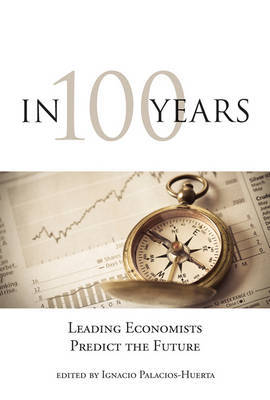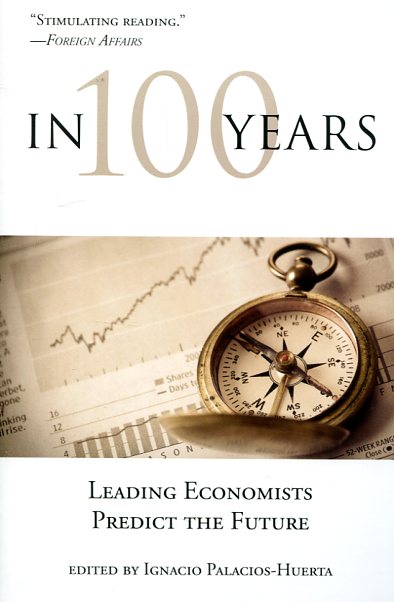In 100 years
leading economists predict the future
- ISBN: 9780262026918
- Editorial: The MIT Press
- Fecha de la edición: 2014
- Lugar de la edición: New York. Estados Unidos de Norteamérica
- Encuadernación: Cartoné
- Medidas: 22 cm
- Nº Pág.: 183
- Idiomas: Inglés

This pithy and engaging volume shows that economists may be better equipped to predict the future than science fiction writers. Economists' ideas, based on both theory and practice, reflect their knowledge of the laws of human interactions as well as years of experimentation and reflection. Although perhaps not as screenplay-ready as a work of fiction, these economists' predictions are ready for their close-ups. In this book, ten prominent economists -- including Nobel laureates and several likely laureates -- offer their ideas about the world of the twenty-second century. In scenarios that range from the optimistic to the guardedly gloomy, these thinkers consider such topics as the transformation of work and wages, the continuing increase in inequality, the economic rise of China and India, the endlessly repeating cycle of crisis and (projected) recovery, the benefits of technology, the economic consequences of political extremism, and the long-range effects of climate change. For example, Daron Acemoglu offers a thoughtful discussion of how trends of the last century -- including uneven growth, technological integration, and resource scarcity -- might translate into the next; 2013 Nobelist Robert Shiller provides an innovative view of future risk management methods using information technology; 2012 Nobelist Alvin Roth projects his theory of Matching Markets into the next century, focusing on schools, jobs, marriage and family, and medicine; 1987 Nobelist Robert Solow considers the shift away from remunerated labor, among other subjects; and Martin Weitzman raises the intriguing but alarming possibility of using geoengineering techniques to mitigate the nevitable effects of climate change. In a 1930 essay mentioned by several contributors, "Economic Possibilities for Our Grandchildren," John Maynard Keynes offered predictions that, read today, range from absolutely correct to spectacularly wrong. This book follows in Keynes's path, hoping, perhaps, to better his average.








